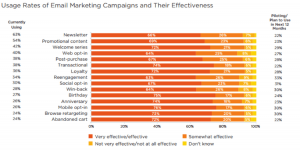So you’ve taken time out to identify what type of personal branding works best for your career, but now the challenging part is knowing whether you want to be a generalist or specialist.
Once you begin building your persona, how will you sell yourself to your industry? Will you be the proverbial jack-of-all trades generalist who has the ability to take on big-picture type projects? Or will you be viewed as a niche-based specialist that is brought in to do the highly-skilled tasks for that only you can perform?
How do you decide whether to be a generalist or specialist? Here’s how….
The answer lies largely with your branding type and what your goals are. So if you are confused on whether developing a niche might be right for you, I have a few things for you to think about.
What’s the Difference, Anyway?
A generalist is someone who is seen as being good at many things. In terms of personal branding, this is a professional with a multiple specialties. On the other hand, a specialist is a person that is focused on a core specialty.
Think of it as the difference between a family practitioner vs a neurosurgeon. Both are medical professionals and yet one individual’s area of expertise is narrowed to a specific set of skills.
Which is Better for Your Brand?
For business purposes, many people think that it is best to be a generalist. This is because it allows you to attract a wider range of clients. So for example, the family practitioner can tend to the needs of many different types of patients. While the neurosurgeon would be called up to deal with only special cases where his experience is warranted.
Obviously, much of this depends on your personal preference regarding type of clientele that you want to work with. Not to mention the narrative that you want to establish in your own branding story. But there are clearly pluses to both roles.
The Benefits of the Generalist
One of the greatest advantages of the generalist is that they have a clear understanding of context. So where the specialist focuses on just their domain-the generalist have vision to get a sense of how the pieces come together.
This can be especially helpful when a project has many moving parts and a person must take the helm as project manager.
My favorite allegory about generalist come from author Vikram Mansharamani, who brilliantly explained how generalist fit in our high specialist world in a recently Harvard Business Review Post. In it, he told a story of a world where everyone is studying tree bark.
Although many of the specialists had taken time to learn of the tree’s many grooves and nooks-they didn’t grasp the tree’s role as part of a forest.
Being the Specialist
While generalist tend to have a broad range of skills and experience across a range of disciplines, the specialists invest time and effort in becoming the go-to person in a certain niche.
Which can be seen as advantageous when trying to establish yourself beyond your competitors.
This is particularly useful when you consider how the workforce has changed due to the recent economic downturn. In many industries that experienced a staffing reduction, employees were often called upon to perform tasks outside of their regular job description.
For these instances, many businesses welcomed the chance to bring in a specialist to tackle the tough tasks other at the company couldn’t.
This kind of persona might be most helpful in the technology sector-where having someone skilled in coding might be crucial to a startup’s product. Or in the creative sector where having someone who is a talented writer can make a difference in a sales proposal.
Generalist or Specialist – Determining Your Path
With such clear advantages to both scenarios, how do you choose the one that’s right for you?
First thing to consider is what your ultimate goal are in terms of personal branding. If you see yourself as an altruist or a connector-perhaps being focused on building a generalist brand might be a great idea as it gives you flexibility on applying your talents in a wide range of situations. Whereas a careerist or a boomerang might like the niche role more.
It also largely depends on where you are in your career. According to a recent Guardian article, it is not uncommon for those new to their chosen industry to become a generalist. This is mainly due to the fact that it allows them to test their options before settling down with a specialty.
Plus, being seen as a generalist makes industry neophyte look all the more attractive to employers. Especially if they know they are getting someone nimble enough to transition between different types of work assignments with ease.
Finally, consider the financial rewards. Going back to our original case of the two doctors-obviously the neurosurgeon has much more earning potential than the family practitioner based on his training.
Of course, that’s not to say that monetary gains are the only determinant if one is considered successful. You also have to weigh your work/life balance as well-which could be an added value that the practitioner values more than money.
So if you are an altruist driven more by the satisfaction of helping others over careerist-based aspirations of position and prestige-the bottom-line should not be the final factor in your decision.
Business & Finance Articles on Business 2 Community(58)
Report Post








